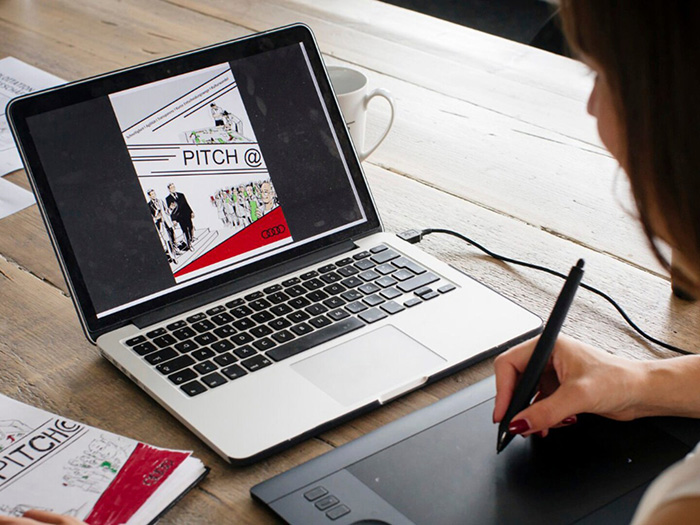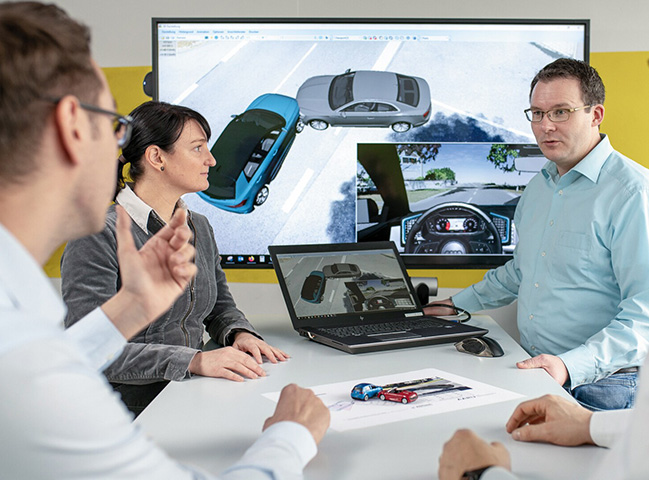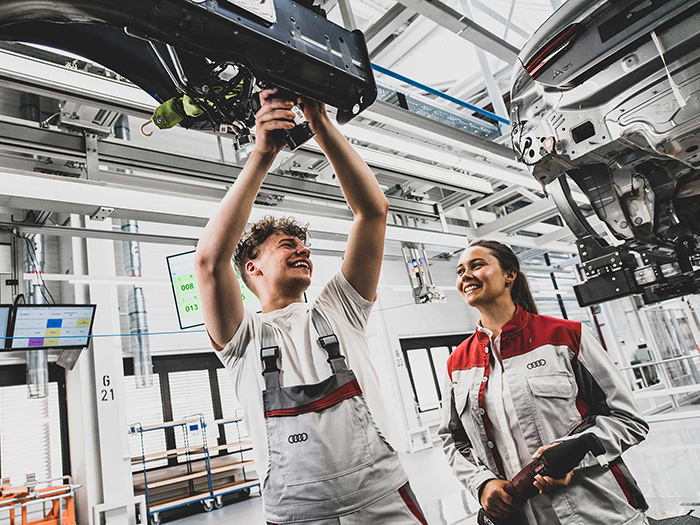Freedom to innovate for shaping the mobility of tomorrow
Audi is transforming itself from a premium car manufacturer into an integrated mobility provider, a change that will also affect its workforce and the jobs within the company. What skills will be most in demand in the future?

The coronavirus crisis has set new challenges for Audi and the entire Volkswagen Group. “We are seeing that our world is changing significantly and that we’ll have to adjust to the continuing impact of the virus”, explains Jochen Haberland, Audi’s Head of Recruitment and HR.
“We’ve switched to digital processes almost overnight. Even though the option of mobile working has been available to our employees for some years, the virus has still had a big impact on our work. There are roles which just aren’t suitable for mobile working, such as production”.
Crises and opportunities
However, given that every crisis is also an opportunity, Audi has taken a further step towards digitalisation and made many processes more efficient. This includes recruitment, which now relies more on online interviews.
The transformation of Audi from a pure car maker into an integrated mobility provider “is also reflected in our image as an employer. Our slogan ‘Vorsprung durch Technik’ points the way for us here. All our employees should be thinking independently about what the next step should look like to make ‘Vorsprung’ a reality, and give us a leading edge”, continues Haberland. “That’s why we want all our colleagues to feel free to introduce bold ideas, develop those ideas themselves and thus demand and take the best possible step forward for the company. For us, freedom is a tool to shape the work environment we need to make great progress”.
Ideas and creativity

Project managers are a good example: they should be able to make autonomous decisions to drive their projects in the direction their experience and expertise tells them is correct. That means not necessarily involving management in every decision-making process, but rather taking the course of action one thinks is right – jointly and supportively with all project members.
“We want to enable our employees to be bold and to initiate unusual projects which may perhaps also lie outside our core competences”, adds Haberland. “In the last year, more than 20,000 suggestions and ideas for optimising processes were submitted, and 50 per cent of them were directly implemented”.
Transformation
Transformation brings uncertainty – that’s human nature, even when changes turn out to be positive in hindsight. “That’s why we want to create a passion for innovation and support colleagues accordingly with the opportunities that we have”, explains Haberland.
One of the tools to do this is the Audi myJob platform, where every employee has the option of updating their skills and capabilities and looking for their next job within the company. “In addition, we offer qualification counselling, so that together we can consider exactly what the next possible step for an employee may look like. Our employees’ qualifications are the most important thing right now”.
Opportunities
Currently the best opportunities at Audi are in the areas of IT and software development, which is, of course, a future market. “But, ultimately, in some places there will always be a lack of specialist expertise which we have concentrated into so-called ‘future clusters’ so that we can drive forward the appropriate technologies there. Examples are digitalisation, electric mobility, and battery technology development – in these areas, developments are running at full tilt. Here we are looking for external candidates who know the ropes at a national and international level,” continues Haberland.
Training and the future

Audi takes direct responsibility for training its employees and offers trainees the best possible preparation, with appropriate opportunities for specialisation. Internal training also ensures a strong connection to the company. “Our strategic human resources planning looks into the future so that we can already say today which skills we will need tomorrow, which we may no longer need, and which we must develop in time and where”, concludes Haberland.
“As a company we are facing radical change and as an employer we are at the forefront of human resources culture. We need team players who can navigate the digital world and work interactively with their environment”.
Source: AUDI AG
